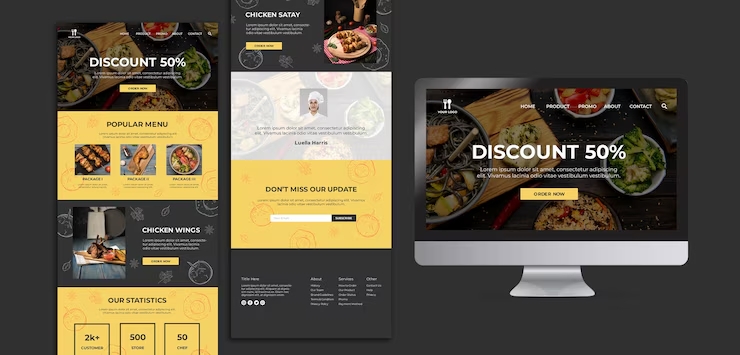
In a business world where digital presence now precedes physical impressions, a company’s website is no longer just a brochure.
It is an operating base, a marketing channel, a revenue stream, and, in many cases, the first and only handshake your customer will ever experience.
For small businesses, the pressure to build an effective website is immense, but the path to doing so isn’t always clear.
Among the many platforms available, WordPress remains the most widely adopted solution in the world.
But in 2025, amid a rising wave of no-code platforms, plug-and-play solutions, and integrated SaaS ecosystems, many business owners find themselves asking a critical question:
Is WordPress still a smart choice for small businesses? To answer that reasonably, we must analyze the trends and conduct a thorough audit of WordPress, including its architecture, strengths, potential, limitations, and its role within today’s rapidly evolving digital ecosystem.
This guide provides a professional, in-depth analysis to help business owners make a truly informed choice, one that goes beyond technology to encompass strategy.
The Scale and Endurance of WordPress in 2025
WordPress is not new. It’s not flashy. But it is enduring and dominant. According to data from W3Techs, WordPress runs over 43 % of all websites on the internet as of early 2025.
Within the CMS category, it holds a commanding 60.8 % market share, placing it far ahead of every other platform combined.
Every single day, an estimated 500 to 600 new WordPress sites go live, outpacing platforms like Squarespace and Shopify by a wide margin.
This isn’t a trend or a temporary wave of popularity; it’s a sustained global infrastructure. WordPress is used by individual freelancers, local cafés, fast-scaling startups, and even international organizations.
The reason it remains this prolific is not just because it is “free” or “familiar” but because it is adaptable.
WordPress can be stripped down to its core or built up into a digital powerhouse. It is, quite literally, whatever you need it to be.
That flexibility is precisely why small businesses are drawn to it and why they often struggle with it as well.
Understanding WordPress Beyond the Surface
WordPress is often misunderstood as a simple website builder. It is not. It is a content management system, and more importantly, it is an open-source framework.
That distinction matters. Unlike platforms like Wix or Squarespace, which are fully hosted and offer limited customization, WordPress gives you complete control over your website’s code, content, and infrastructure.
But that control comes with responsibility. You choose your hosting provider. You manage your updates. You control your themes, plugins, database, and backups. For business owners accustomed to turnkey systems, this can feel overwhelming.
But for those who want complete ownership over their digital property, WordPress offers unmatched freedom.
Why WordPress Has Been the First Choice for Small Businesses

For more than a decade, small business owners have gravitated toward WordPress for one primary reason: it offers enterprise-level functionality at a small business cost.
Should I use WordPress for my business website? Yes, because the WordPress software itself is free. Your only upfront requirements are a domain name and hosting, both of which can be obtained for modest yearly fees.
In comparison to SaaS platforms that charge ongoing monthly subscriptions, WordPress is far more cost-efficient in the long run, especially if you plan to scale or customize.
What also makes WordPress particularly appealing is the ability to start small and grow gradually.
A business can start with a single landing page and then add a blog, an e-commerce store, a booking system, and multilingual support as its needs evolve.
You are never locked into a pricing plan or feature set, and you grow at your own pace, and then there’s design. WordPress doesn’t lock you into a pre-made template.
Whether you use a premium theme or develop a fully custom one, you’re not just decorating within a box; you’re building your own environment.
For businesses that view branding as essential, WordPress business website enables the creation of tailored, expressive websites that accurately reflect their identity, purpose, and professionalism.
SEO Performance: Why WordPress Dominates Organic Visibility
In today’s competitive online marketplace, visibility is not optional. If your business cannot be found through a search, your customers will go elsewhere.
WordPress has always understood this, which is why it is structured around best practices in search engine optimization.
The platform’s core is built with semantic, crawlable code. It allows for complete control over metadata, custom URLs, headings, alt tags, structured data, and canonical links.
Its permalink structure is clean, and it integrates seamlessly with search engine APIs like Google’s Indexing API and schema.org.
What truly sets WordPress apart, however, is its SEO extensibility. With plugins like Yoast SEO and Rank Math, even non-technical users are guided through on-page optimization, internal linking, sitemaps, breadcrumbs, and readability enhancements.
WordPress also performs well in Google’s Core Web Vitals metrics, provided the site is built cleanly and hosted on optimized servers.
If your business’s whole strategy relies solely on inbound traffic, local SEO, or long-term content marketing, WordPress offers not merely compatibility with SEO but strategic superiority.
Selling Online with WordPress: The Strength of WooCommerce
One of the most transformative features of WordPress is its ability to support an e-commerce website. Through WooCommerce, WordPress can evolve into a full-featured online store with capabilities on par with Shopify, BigCommerce, or Magento without sacrificing control.
WooCommerce currently powers over 22% of the top 1 million eCommerce websites globally, according to BuiltWith.
This makes it the single most widely used e-commerce solution on the web. For small businesses, WooCommerce provides everything needed to manage inventory, accept payments, handle taxes and shipping, and build customer accounts.
Digital products, physical goods, subscriptions, and services can all be sold within a single ecosystem.
Unlike many SaaS platforms, WooCommerce doesn’t take a cut of your transactions, nor does it charge based on sales volume.
That said, WooCommerce requires a more intentional setup. It must be configured carefully to strike a balance between speed, security, and usability.
As product counts and traffic grow, performance tuning becomes essential. Unlike Shopify, you are not guaranteed optimization out of the box; you must build it yourself.
However, if done correctly, you get an online store that is infinitely customizable, deeply integrated, and truly your own.
The Technical Reality: Freedom Requires Maintenance
There is no avoiding this truth: WordPress is not hands-off. It is powerful, but it is not a “set it and forget it” system.
Updates to the WordPress core, plugin compatibility, security patches, and database optimizations are all part of running a successful WordPress site.
Many small businesses stumble here. They install dozens of plugins, choose a flashy theme, and then stop updating the site. Within months, it slows down, breaks, or becomes vulnerable to attack.
This is not a flaw in WordPress itself, and it’s the price of freedom without oversight. To thrive on WordPress, you must treat your site as software. That means investing in secure, managed hosting.
It means choosing lightweight, well-coded themes. It means updating, backing up, and monitoring. For some, this is easily outsourced. For others, it’s a sign to consider a simpler platform.
But for those willing to maintain it or hire the right support, WordPress becomes a living digital asset that evolves without limits.
How WordPress Compares to No-Code and Closed Platforms
No-code platforms have matured rapidly in recent years. Tools like Webflow, Squarespace, and Wix offer fast, elegant site-building environments with managed hosting and integrated features.
For business owners who want to launch quickly with minimal setup, these platforms are undeniably attractive.
They are visual, intuitive, and require no coding knowledge. For static websites, portfolios, or lean marketing pages, no-code platforms often outperform WordPress in simplicity and onboarding.
But this simplicity comes at a cost. You are restricted to their design paradigms. You cannot always export your data or migrate your site.
Their pricing models and performance ceilings bind you. And when you need custom features, such as advanced filtering, dynamic content, multi-language support, or CRM integration, you may find yourself constrained.
WordPress is not faster; it is not easier, but it is more expandable, more powerful, and more strategic.
If you envision your business evolving digitally, adding content, services, or digital tools, WordPress offers the infrastructure to support that growth.
When WordPress Is the Right Fit for Your Business

WordPress is the right platform when your business values ownership, flexibility, and long-term scalability. It excels when you need precise control over how your website looks, functions, and evolves.
It is ideal when SEO is central to your marketing strategy and when performance, brand identity, and customization matter more than ease of use. It is especially valuable if you’re building a site that will be more than a digital flyer.
If your business is rooted in content, education, commerce, or conversion-driven design, WordPress offers a framework to support that complexity; however, it is not the right choice for every business.
When WordPress May Not Be the Best Option
If your immediate need is a simple, elegant website that requires no maintenance, and your team lacks technical experience or a developer on retainer, WordPress may introduce unnecessary friction.
No-code platforms offer a better experience for very small websites, temporary campaigns, or low-tech teams.
WordPress also becomes problematic when mismanaged. Sites built with poorly coded themes or overloaded with unnecessary plugins are common, and they damage not only performance but brand credibility.
If there’s no commitment to maintaining the platform properly, then it’s better to use a hosted solution that will handle it for you. In short, WordPress is not for the unprepared. But it rewards the strategy.
Final Verdict: Is WordPress Good for a Small Business in 2025?
The answer is yes, resoundingly, strategically, and conditionally. WordPress is not the easiest. It’s not the fastest to launch. But it is, without a doubt, one of the most powerful platforms a small business can invest in.
It is a platform of ownership, not subscription. It scales with your ambition. It supports your creativity. And when done right, it can transform your digital presence from something functional into something foundational.
If you value long-term brand equity, content visibility, design freedom, and complete control over your digital future, WordPress will not just support your business. It will empower it.
And if you’re starting with WordPress or any platform at all, remember: no site performs without a strong, coherent brand.
A professional logo is the cornerstone of that visual identity. When it’s done right, it doesn’t just make you look good; it builds trust before a single word is read.
That’s why businesses beginning their digital journey trust Vince Logo Design, where visual identity meets strategic clarity.
Let the foundation be strong, and the rest will follow.

Vince Logo Design is a distinguished digital marketing agency, specializing in crafting compelling brand identities and optimizing online presence. We are your partners in creating impactful digital strategies that drive results.
Get in touch.Articles
- Top 10 SEO Benefits of Responsive Web Design in 2025
- 8 Best CMS for Small Business in 2025: Pick the Popular
- 5 Best Hosting for Small Business Websites
- Affordable WordPress Website Design: Best Service Provider
- Custom Design Vs Template Website: Which One Is Best?
- Fix My WordPress Site: WSOD, Redirect & Site Maintenance
Get Free Consultancy
Fill the following form and receive a guaranteed response within 48 hours.
We have worked with world's leading brands











